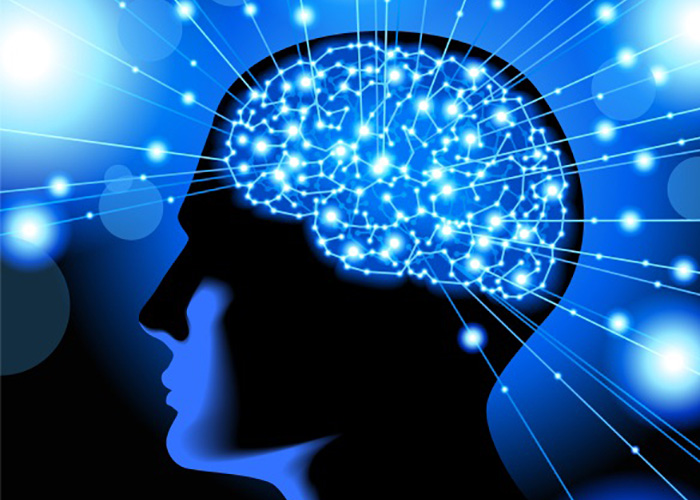By John DiConsiglio
Put a group of strangers in a social setting—a restaurant, for example, or an office—and the results are likely to be, well, unremarkable. Dinners will be ordered, conversations will ensue, decorum will be maintained.
That is, if those strangers happen to be human. If they are instead, say, chimpanzees, it won’t be long before fur flies, teeth are gnashed and more than just the appetizer is flung across the room.
Unlike any other primate, humans are extraordinarily good at getting along. Our ability to socialize—to build and sustain large communities and institutions—may not seem like a particularly unique skill. But, as evolutionary scientists agree, it’s actually a trait that distinguishes us as a species and accounts for everything from pre-school children playing in groups to the fabric of society holding civilization together.
“Our ability to cooperate is astonishingly good,” said Associate Professor of Philosophy Tadeusz W. Zawidzki, chair of the Department Philosophy and co-director the interdisciplinary GW Mind-Brain Institute. “Even if we are in an unfamiliar setting or surrounded by people we don’t know, we are still able to interact and behave in ways that fit societal norms. Believe me, if you put a bunch of unfamiliar chimps together in a closed space, you’d have a blood bath on your hands.”
How exactly our cooperative instincts work has long been a puzzle of human evolution; however, Zawidzki believes he has found an answer. His research points to “mindshaping”—a theory he outlined in his 2013 book Mindshaping: A New Framework for Understanding Human Social Cognition. It’s an idea that contradicts decades of scientific thinking and is disputed by some of his colleagues in philosophy and fields like comparative and developmental psychology. But the implications reach beyond the academic world into issues as varied as racial stereotyping and mental health therapy.
Mindshaping v. Mindreading
Zawidzki’s idea pits two psychological and philosophical principles against each other—so-called mindreading versus what he has dubbed mindshaping.
The traditional theory of how human coordination and cooperation evolved relies on mindreading—essentially the notion that we are experts at observing human behavior and inferring the thoughts, desires and mental states that cause. According to that theory, we are such good mindreaders that we can accurately predict how another person will react in a situation.
Zawidzki rejects this widely-accepted concept. To him, mindreading leaves too many unanswered questions: How do we pick up on the thoughts of total strangers? How can we analyze mindreading clues so quickly and precisely that we can anticipate another’s actions within split seconds?
“We have been studying the mind for 100 years and we have made fairly little progress in understanding what makes us tick,” he said. “So it seems unlikely that we have a naturally evolved ability to know what other people are thinking at all times—and for whom we have no psychological profile—and be able to do it quickly enough to predict their behavior.”
Building on an idea first proposed by University of London, King’s College philosopher Matteo Mameli, Zawidzki offers an alternative explanation: Maybe, he suggests, we aren’t particularly insightful mindreaders. “Maybe what we are really good at is shaping ourselves in ways that makes us easier to predict.”
Tadeusz W. Zawidzki (Photo: Logan Werlinger)
This concept of mindshaping, unlike mindreading, hinges on learned behavior and societal interactions rather than on an innate “theory of mind,” Zawidzki said. In mindshaping, humans train themselves to act in familiar ways and thereby make their behavior predictable, leading to better coordination within groups and between individuals who have been shaped in similar ways.
According to Zawidzki, humans develop mindshaping in four key ways: high fidelity imitation, such as the way children copy adults performing tasks, often in minute detail; a parental focus on teaching and shaping how our offspring think; and conformance to narratives or perceptions about our roles in life, such as that of being a mother.
Mindshaping, for example, explains why we are conditioned to mimic prominent members of society—whether it’s a teenager dressing like a pop star, a baseball player obsessively adjusting his batting gloves in the same manner as his heroes from childhood or even a university professor emulating the classroom routines of his mentors. Our need to conform with norms and role-narratives accounts for our predictable aversion to acting in ways that don’t fit our societal storyline, like the guilt a mother feels if she forgets to pick up her child from school. “What we expect other people to do is pretty much exactly what they are going to do because we have been socialized to act that way,” Zawidzki said.
Mindshaping may well explain why certain biases like racial stereotypes can be deeply ingrained in our beliefs, Zawidzki noted. Since human prehistory, people have treated a common language or appearance as a sign of trustworthiness. Straying from that norm can still trigger suspicions. “Something that long ago may have been a very useful tool for cooperation within a group becomes a terrible practice in modern society,” he said.
Likewise, our instinctual need to follow social models can lead to unhealthy and even destructive behavior. When, for example, society promotes an absurdly unrealistic body image through air-brushed models in fashion magazines, Zawidzki says it’s no surprise that teenagers develop conditions like eating disorders to conform to an unattainable ideal. Similarly, a college student’s obsession with achievement—from landing the best internship to excelling at sports and scoring all A’s—can be attributed to “a desire to shape oneself to become a member in good standing of one’s community,” Zawidzki said. “It’s a fundamental human drive, as powerful as a bird’s drive to build a nest or a beaver’s drive to build a dam.”
Zawidzki hopes that linking psychological conditions to human mindshaping practices may promote alternative therapeutic approaches. “Rather than dismissing certain psychological problems as product of bad brain chemistry and prescribing a pharmacological intervention, we may be more willing to see them as societal issues,” he said.



